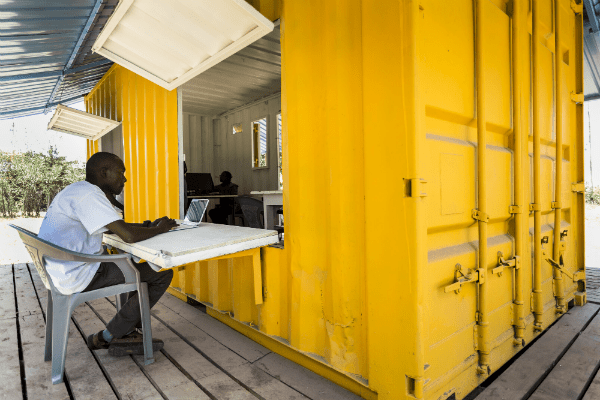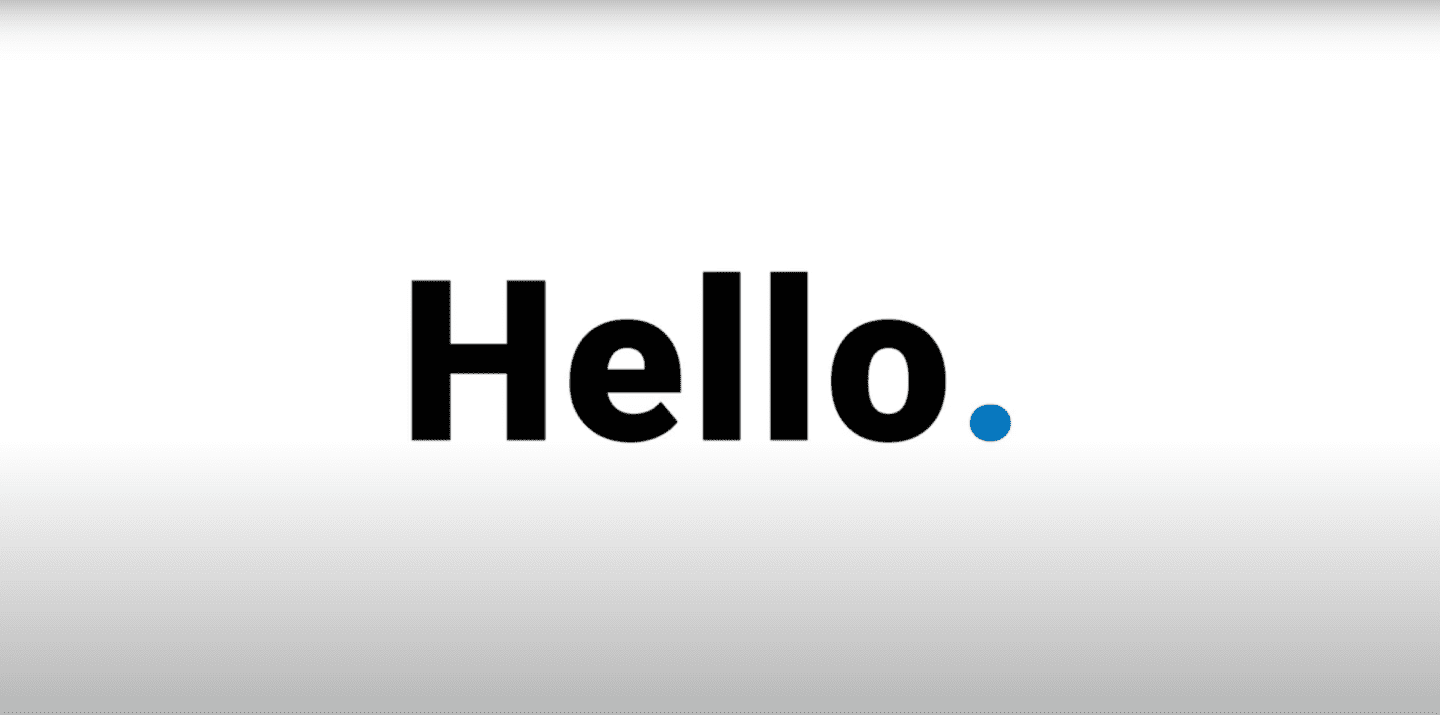The Turing Talks took place at the National Museum of Scotland last month. A day packed with disruptive insight that challenged attendees to think differently. As proud sponsors of the conference and supporters of the Turing Trust, there was no chance we were going to miss this event!
The Turing Talks 2017 – using technology for good
When we hear of Alan Turing, we’re used to seeing his story depicted in news, documentaries and blockbuster films. And although the event kicked off with a gripping portrayal of Turing in 2015’s Imitation Game – the day was very much focused on the future. Specifically, the future of the developing world.
It was great to see the common thread from all the speakers, whether they were private, public or third sector: technology should support a better quality of life.
An important sentiment which should be embraced as the World continues to connect. Connecting communities through technology can help reduce the inequalities in our societies. Better and sustainable access to education and healthcare can improve the lives of everyone, not just the privileged few.
Whilst it is great to see people embrace that idea, it was even more inspirational to hear from organisations who are already using technology to enhance lives:
- BBOXX are a start-up supplying the same volume of electricity in Rwanda as the National Grid – bringing light and heat to rural communities.
- Microsoft is providing 4G strength connections across parts of rural Africa – allowing families to access education and stay connected with distant communities.
- IBM hold a research lab in Africa investigating the prevention of killer diseases like tuberculosis using sensors.
The SolarBerry
Another innovative solution to bridging the gap is the Turing Trust’s very own SolarBerry project. Providing solar powered self-sustaining environments for people to educate, connect and measure improvement.
The idea has been mirrored by tech giants like Microsoft. Which is not surprising as these projects provide both the opportunity to develop computer skills whilst learning other subjects like English, Maths and Sciences.
This programme delivers a truly sustainable way to up-skill and educate people across remote, rural communities. Not only is all the recycled equipment powered by solar energy, even the container is reused as the structure for the classroom.

Working with software companies OneBillion and Mwabu allows the programme to deliver both the hardware and software to the people who need it. Their e-learning software, aimed specifically at the African market, allows teachers to structure curriculums to the needs of each child. Giving children the opportunity to learn at their own pace and delivers better results than previous methods.
Technology supporting refugee communities
One of the best talks of the day was about the work of UNICEF in crisis zones and refugee camps. They’ve been using disruptive technology to improve the lives of people through organisation, resource sharing and education.
A great example of this work can be seen in the Zaatari refugee camp in Jordan. What was once a basic camp has developed its own economy, water supply, waste management, energy, and education system all thanks to technology. For example, they currently use smart devices on water wastage tanks to intelligently detect waste levels for collection. Waste disposal trucks can then also calculate the most efficient route around the streets.
With a population of around 80,000 people, Zaatari refugees have created a City greater than the size of Portland, Maine within 5 years. The growth of its infrastructure has been rapid: Today it has 9 schools, 27 community centres, 2 hospitals, as well as a whole range of shops and businesses. The Jordan site’s success was all built on an innovative network of people and technology that continues to evolve.
Our key take away
Technology is the crucial factor in rapidly improving people’s quality of live. That is why it is so important to support innovative projects in the places that need them most. Only this way, can we really make a difference to people and use technology for good.
We’d like to congratulate the Turing Trust on the great success of their first Turing Talks. The event was something everybody involved should be proud of. Everyone here at Border Crossing UX is looking forward to seeing what’s in store for next year!
You can find all the speakers below:
Bernie Hollywood OBE
Roland Bone – Vice President at Barclays
Matthew Gardiner – NGO Engagement Lead at Techfugees
Christopher Baker-Brian – Co-founder and CTO at BBOXX
James Turing – Founder & Director at Turing Trust
Dr Geoffrey Siwo – Research and Scientist at IBM
Eva Kaplan – Innovation Specialist at UNICEF Jordan
Dr Alasdair Allan – Scottish Minister for International Development and Europe
Mark Beaumont – Athlete, Broadcaster
Judith Hermetter – Head of Communications at OneBillion
Charlotte Scott – International Advisory Board, Mwabu
Steve Clayton – Chief Storyteller at Microsoft
Haley Sudbury – CEO & Founder at Werkin
Amanda Regen – Engineer & Project Manager at European Space Agency
Working with the Turing Trust
Border Crossing UX work with the Turing Trust because we love their vision and mission:
OUR VISION IS A WORLD WITH TECHNOLOGY-ENABLED EDUCATION FOR ALL.
OUR MISSION IS TO EMPOWER DISADVANTAGED COMMUNITIES USING INFORMATION TECHNOLOGY ENABLED LEARNING.
Making the world a fairer place through efficient and sustainable education projects is innovative. And as they are really imaging a better world, and then creating it, how could we not get involved!
Consequently, the opportunity evolved into a partnership for the first Turing Talks – helping raise awareness on the impact of technology in the developing world. Additionally, we worked with the team to optimise their website to help showcase what they do and improve conversion rate for donations. If you’ve got unused computer equipment or want to donate then please get in touch with the Turing Trust today.
The proceeds from the event will also support the Trust’s digital projects in Africa. The Turing Trust aim to feed funds from the conference into supporting education in Africa and their SolarBerry so that they can continue this vital work.


